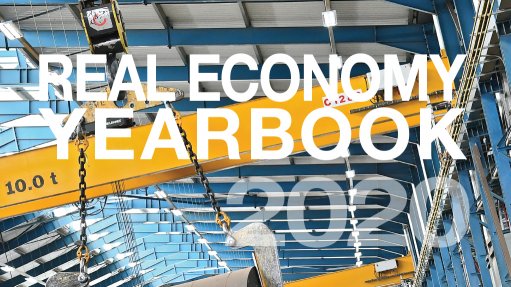
Rebuilding together
The economic and social recovery from the global Covid-19 pandemic will, without question, shape the economies of all countries globally for years to come, as well as all the sectors featured in this yearbook. Likewise, the policy choices made in the coming few months will have a strong bearing on the future health and wellbeing of citizens and the sustainability of key sectors.
The pandemic has also brought to the fore serious contradictions within and between countries, which was expressed by United Nations secretary-general António Guterres while delivering the eighteenth Nelson Mandela Annual Lecture on July 18: “Covid-19 has been likened to an X-ray, revealing fractures in the fragile skeleton of the societies we have built”.
Recovering from this pandemic and setting society on a new, more sustainable, course, has emerged as this generation’s most pressing task. The challenge has been made even greater because the social and economic effects of Covid-19 have been so broad-based and devastating. The world is facing its deepest recession since World War II, the broadest collapse in incomes since 1870 and the risk that 100-million more people could be pushed into extreme poverty.
In South Africa, the crisis is compounded by the country’s having entered the pandemic on the back foot. The economy had already retreated into recession, unemployment was on the rise and the capacity for government to respond was heavily constrained, owing to the serious deterioration in the fiscal balance since the previous crisis of 2008/9.
It is now widely accepted that extricating South Africa and the world from this crisis will require extraordinary leadership, tremendous effort and self-sacrificing cooperation, with cooperation likely to emerge as the most important ingredient of all if an inclusive recovery is to be stimulated and sustained.
If South Africa’s political, economic and social leaders fail to unite behind a common recovery vision, prospects for delivering a deal that is effective and equitable will be slim. That is not to say there should be no debate or dissent. This country is in unchartered territory and no one individual or institution has all the answers. Nevertheless, once, after consultation, a line of march is chosen, South Africans need to get behind it.
For this reason, it would make sense to start with a programme that has attracted a degree of consensus across society. Here, South Africa has a ready-baked solution, with social partners having largely agreed that the economic recovery should be infrastructure-led. This is hugely sensible, as the country does not only have enormous economic and social-infrastructure backlogs to close, but infrastructure also has large employment, growth and industrialisation multipliers. In addition, with foresight and clear policy, it is an area where private-sector capital can be mobilised and harnessed for the good of society.
If implemented diligently and effectively, an infrastructure-led recovery could have all South Africans ‘rebuilding together’ in a way not witnessed since the early period of the democratic era.
To access the Real Economy Yearbook flipbook click here